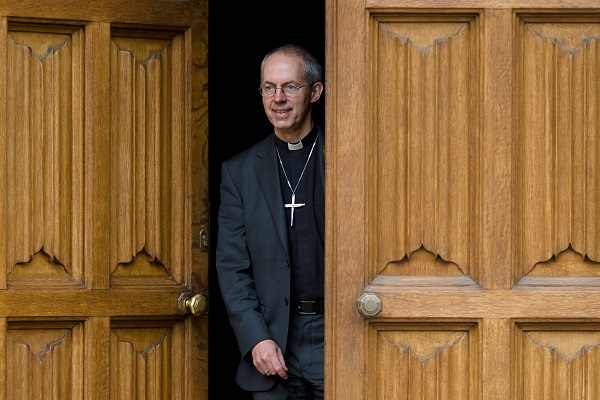In this increasingly secular age, you would expect the Archbishop of Canterbury to be a figure of diminishing importance. But Justin Welby is fast becoming the most politically influential Archbishop since the war.
Part of Welby’s influence stems from the fact that both the Conservatives and Labour think that he is, secretly, one of them. I remember within days of his appointment being approacedh by a Tory minister and then by one of those closest to Ed Miliband. They both wanted to explain how Welby was going to help move public debate in their direction. One never had this kind of conversation about Rowan Williams whose views were thought not to be of this world. What was particularly striking was that Welby was being noticed at Westminster by those interested in power rather than prayer.
Welby’s interview with Charles Moore in the Telegraph today shows just why he keeps both sides of the political divide interested. Welby tells Charles, ”I am a classic floating voter – and now I don’t vote.’
When Charles, Thatcher’s biographer, asks him what he thinks of Thatcher, Welby replies: “Genuinely, I don’t know the answer. When I was in the oil industry in the Eighties, I thought she was brilliant. When I was a clergyman in the North [Liverpool and Durham], I had a different view. But I think she had a discontent with drift which is really important, and an optimism about this country.”
Answers like this mean that Welby will keep on interesting politicians in all parties. I suspect that we’ll hear plenty more about this world from the Archbishop in the coming months. His decision to stay on the Banking Commission even after he had been named as the next Archbishop showed that he wanted to have a real influence on political debate in this country.







Comments